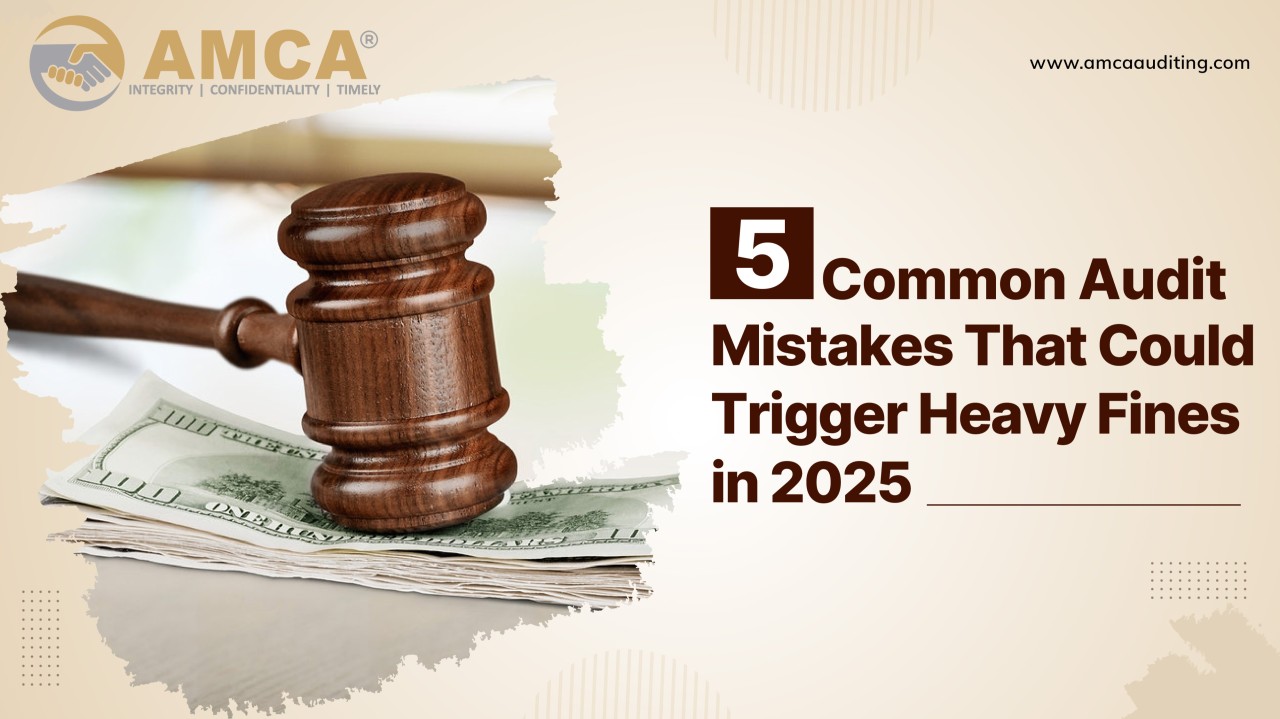
08 Jul 2025
5 Common Audit Mistakes That Could Trigger Heavy Fines in 2025 — And How to Avoid Them
Audits in the UAE are becoming stricter as tax and compliance regulations continue to evolve. With fines reaching up to AED 50,000 for non-compliance and other serious consequences, such as license revocation, it pays to know what mistakes to avoid.
Here are 5 audit pitfalls to watch out for
1. Incomplete Records: Missing invoices, contracts and receipts can trigger audit issues.
2. Inaccurate Financial Statements: Even minor errors can lead to hefty fines.
3. Ignoring VAT and Tax Regulations: Non-compliance could result in backdated tax liabilities and heavy penalties.
4. Mixing Personal and Business Expenses: Blurring these lines can complicate audits and invite scrutiny.
5. Late Submission of Financial Statements: Deadlines matter — missing them can incur severe penalties.
6. Broader Legal Non-Compliance: Overlooking requirements such as license renewals, AML/CFT compliance, UBO declarations(wherever applicable) can lead to serious consequences — including regulatory action, fines, or reputational damage.
Don’t Risk It — Prepare Early
Its mid 2025, and now is the perfect time to review your financial processes and prevent these common mistakes. Our audit team can help you identify risks and improve compliance to ensure a smooth audit season.
Reach out to AMCA to set up a pre-audit review and stay penalty-free in 2025.
Frequently Asked Questions (FAQs)
Q1. What are the top 5 audit mistakes to avoid in 2025?
The most common and costly audit mistakes in 2025 include:
-
Incomplete or inaccurate financial records
-
Non-compliance with the latest tax and regulatory changes
-
Lack of internal control systems
-
Failure to maintain proper documentation for expenses and revenues
-
Ignoring auditor recommendations or deadlines
Q2. Why are audit mistakes more critical in 2025?
In 2025, regulatory bodies have tightened compliance rules, especially in areas like corporate tax, VAT, and AML (Anti-Money Laundering). Mistakes now carry heavier fines and greater scrutiny, making audit readiness more important than ever.
Q3. How can poor documentation impact my audit?.
Poor documentation can lead to disallowed deductions, penalties for non-compliance, and even legal action. It also makes it harder for auditors to verify your financial data, which can delay audit completion or result in negative findings.
Q4. What is the role of internal controls in avoiding audit mistakes?
Internal controls help detect and prevent errors, fraud, and non-compliance. Without proper controls in place, your business is more vulnerable to financial inaccuracies that can trigger audit failures.

.jpg)

.png)
